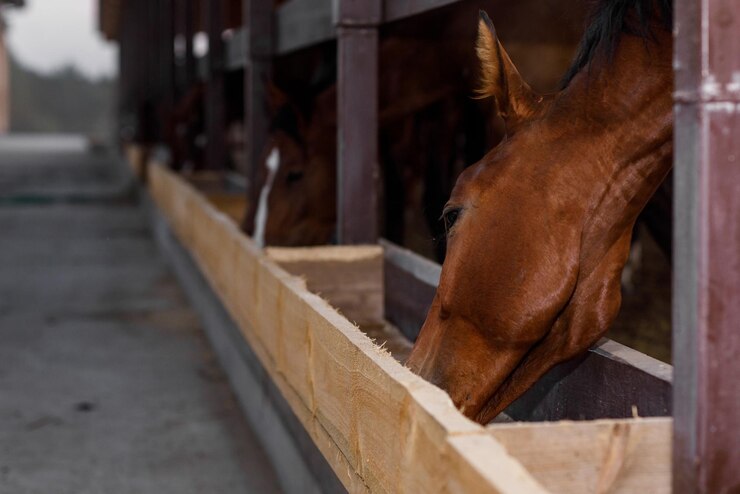When it comes to feeding your beloved horses, making the right choice between oats and pellets can be a pivotal decision. The debate of oats vs pellets for horses is one that has intrigued equestrians and horse owners for years. Both options have their own nutritional benefits and drawbacks, and understanding these can lead to healthier, happier horses.

Understanding Horse Nutrition
Before diving into the specifics of oats and pellets, it’s essential to grasp the basics of horse nutrition. Horses require a balanced diet that includes carbohydrates, proteins, fats, vitamins, and minerals. Their digestive system is uniquely designed to process roughage, which is why hay and grass are staples in their diet.
The Role of Carbohydrates
Carbohydrates are the primary energy source for horses, and both oats and pellets can provide these essential nutrients. However, the type and digestibility of carbohydrates can vary between the two.
Oats: A Traditional Favorite
Oats have been a traditional staple in equine diets for centuries. Known for their high energy content, they are often favored for performance horses needing quick energy bursts.
Benefits of Feeding Oats
Oats are high in starch, which breaks down into glucose, providing immediate energy. This makes them ideal for horses engaged in high-intensity activities. Additionally, oats are palatable and easy to digest, making them a favorite among picky eaters.
Drawbacks of Oats
Despite their many benefits, oats can sometimes provide too much energy, leading to excitability or digestive issues if not balanced correctly with other components like hay. Horses with metabolic issues may not handle oats well.
Pellets: A Modern Solution
Pellets are a more modern approach to horse feeding, often made by compressing a mix of ingredients like grains, vitamins, and minerals into small, uniform pieces.
Advantages of Pellets
One of the significant benefits of pellets is their consistency. They offer a balanced diet in every bite, ensuring that horses receive the necessary nutrients without the guesswork. Pellets are also convenient to store and transport, making them a practical choice for many horse owners.
Potential Downsides of Pellets
While pellets offer a balanced approach, they may not provide the same level of immediate energy as oats. Additionally, some horses may find pellets less palatable, requiring time to adjust.
Comparing Nutritional Content
When choosing between oats and pellets, it’s crucial to consider their nutritional content. Oats are higher in carbohydrates, while pellets are often enriched with additional vitamins and minerals.
Fiber Content
Fiber is vital for a horse’s digestive health. Oats contain hulls, which provide a source of roughage, while pellets can vary in fiber content depending on their composition.
Protein Levels
Proteins are essential for muscle development and repair. While oats have moderate protein levels, pellets can be formulated to meet specific dietary requirements, making them a versatile option.
Choosing the Right Feed for Your Horse
The decision between oats and pellets ultimately depends on your horse’s individual needs. Factors such as age, activity level, and health conditions play a significant role in determining the best feed.
Considerations for Performance Horses
For performance horses, oats may be the preferred choice due to their high energy content. However, a balanced diet that includes pellets can also support endurance and overall health.
Feeding Horses with Metabolic Concerns
Horses with metabolic issues may benefit from a diet lower in starch, making certain types of pellets a more suitable option. Understanding the body condition of your horse can help in making these decisions.
Expert Opinions and Research
Many equine nutritionists argue that a mixed diet incorporating both oats and pellets can provide the best of both worlds. Research supports that variety can enhance a horse’s overall nutrition and well-being.
Balancing the Diet
Balance is key in any diet. Ensuring your horse receives adequate fiber, protein, and essential nutrients is crucial for their health. Consulting with a veterinarian or equine nutritionist can provide personalized advice.

FAQs
Are oats better than pellets for energy?
Oats provide immediate energy, making them suitable for performance horses. However, pellets offer a balanced diet that can sustain long-term energy needs.
Can I mix oats and pellets in my horse’s diet?
Yes, mixing oats and pellets can provide a balanced diet. It combines the quick energy of oats with the nutritional balance of pellets.
What should I consider when switching my horse’s feed?
When transitioning feeds, do so gradually to avoid digestive upset. Monitor your horse’s condition and consult a professional if needed.
For more information on nutritional diseases in horses, you can refer to trusted veterinary resources.
This article contains affiliate links. We may earn a commission at no extra cost to you.
